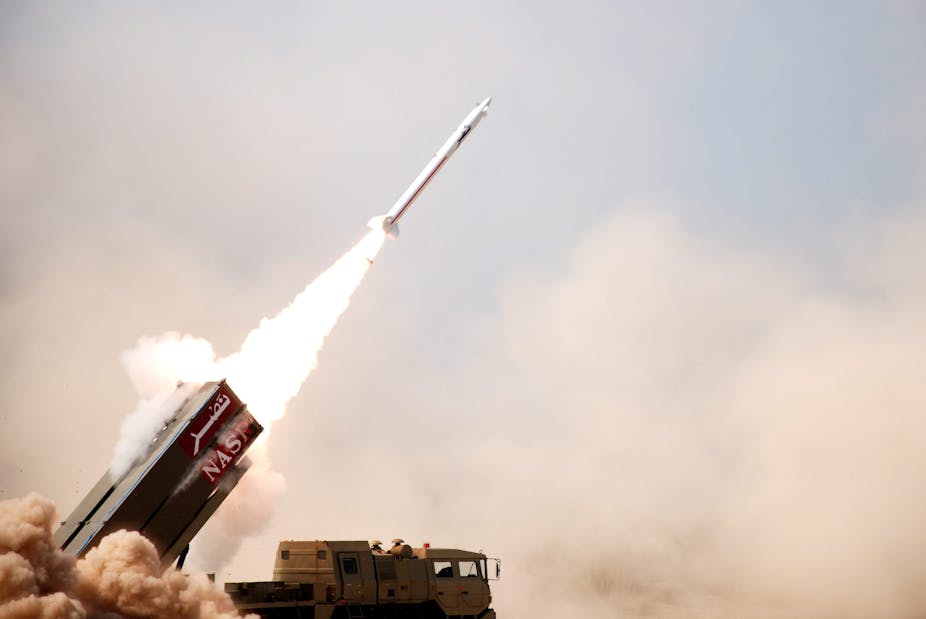The United Nations on Tuesday approved the first treaty on the global arms trade which would regulate a business that amounts to over US$70 billion. There were 154 nations in favour, three against and 22 abstentions. The three nays were from North Korea, Iran and Syria. The most notable yea came from the United States, one of the world’s biggest arms exporters, despite vocal opposition from domestic groups such as the National Rifle Association.
It wasn’t all smooth sailing. Agreement on the treaty, which would regulate the illicit arms trade, has been hard to find. Ideas of a global framework to regulate the arms trade have been on the UN table since 1995, with efforts made in 2006 and 2012 to develop what became the Arms Trade Treaty (ATT). Last week, North Korea, Iran and Syria blocked its adoption by consensus, leading to a group of countries - including the United Kingdom - to place the vote before the General Assembly.
UN secretary-general Ban Ki-moon - one of the busiest proponents of the ATT - was pleased, claiming that the document:
will make it more difficult for deadly weapons to be diverted into the illicit market and…will keep warlords, pirates, terrorists, criminals and their like from acquiring deadly arms.
Much of this is wilful thinking. A treaty is one thing, ratification and compliance quite another. The arms export market is one of the most lucrative on the planet, with humanitarian considerations secondary. States place considerable reliance on receipts from such sales, less on the lives lost in the use of such weapons. To not have the major exporters join the regime will make it toothless, reducing the treaty to nothing more than an empty moral statement.
A clue can be gathered from the abstentions of several powers. Some major exporters (Russia and China) and some notable importers (India), kept mum about the issue. The arguments there concern the imbalance the treaty seems to encourage. India, leading the charge for the abstaining countries, declared that the treaty favoured exporting over importing states.
Lead negotiator Sujata Mehta took issue with the treaty’s weak position on terrorism and non-state actors. Nor could India accept “that the treaty be used as an instrument in the hands of exporting states to take unilateral force majeure against important states parties without consequences”.
The US vote for the treaty may also prove wobbly. A fractious Senate has already made strong statements that domestic ratification of the treaty will be opposed. Last month, it voted for an amendment preventing the US from entering into the treaty, with senators fearing that the agreement would infringe on Second Amendment rights. The statement of Republican Senator James Inhofe is worth nothing:
The UN Arms Trade Treaty that passed in the General Assembly today would require the United States to implement gun-control legislation as required by the treaty, which would supersede the laws our elected officials have already put into place.
While coming across as callous, the position by the abstainers makes some sense, if only to show how fatuous a term such as “legitimate arms trade” can be. The business of killing knows no sovereign limits, though proponents of the treaty suggest that it is a “sovereign right” to dabble in the selling and buying of arms. There is a world of difference, so goes this line of thinking, between good states and parties who partake in the market, and those who do not.

Anna Macdonald of Oxfam seems to see the treaty in limited terms, as it “sends a clear message to arms dealers who supply warlords and dictators that their time is up”. It means that the arms suppliers can go about the business of selling weapons for killing as long as they tick the boxes of propriety. Illicit trade is regarded as different from regulated trade.
It was recently shown – notably by the independent arms scouting of Brown Moses – how the market of conventional arms is nigh impossible to regulate. Once you start investing in the business of killing, such terminology as “illicit” or “legitimate” prove irrelevant. Bullets don’t have a conscience. Conventional arms from Croatia intended for one group of anti-Assad supporters ended up in the hands of another group – the fundamentalist al-Nusra Front. Little wonder then that the Assad regime in Syria was none too keen to support a treaty that would simply buttress the current arms embargo.
Many of the UN delegates may be suffering from misplaced enthusiasm. The treaty will be available for signature on June 3 and will come into force 90 days after the 50th signatory appends its signature. Some treaties have a habit of being shredded after drafting, or at the very least, rendered hollow. For all the aspirations of the ATT, a fundamental weakness remains its legitimisation of the business of killing while deeming some who practice it as “illicit”. Few will agree on how to apply that test.

